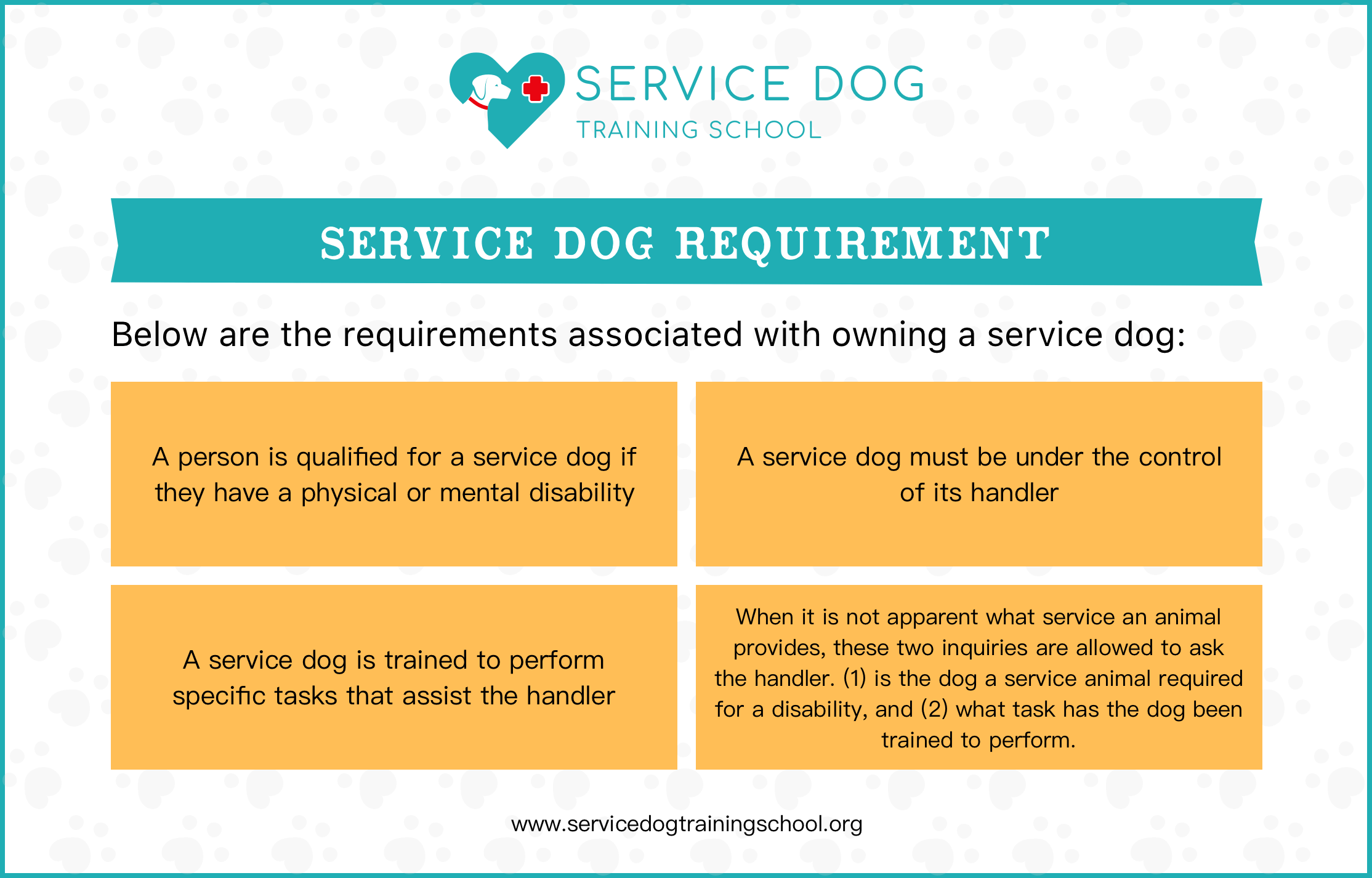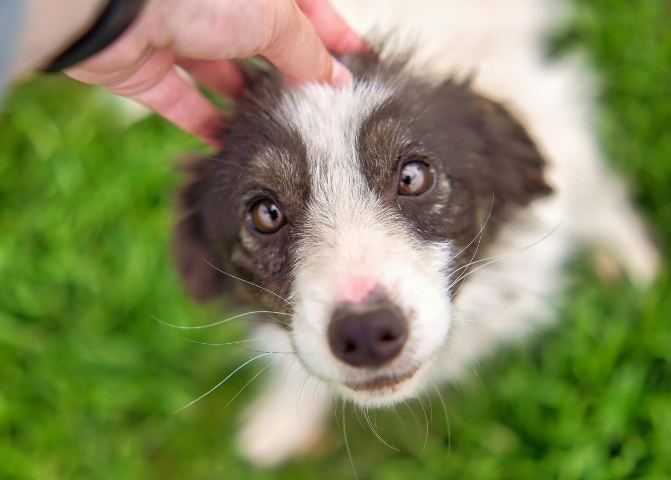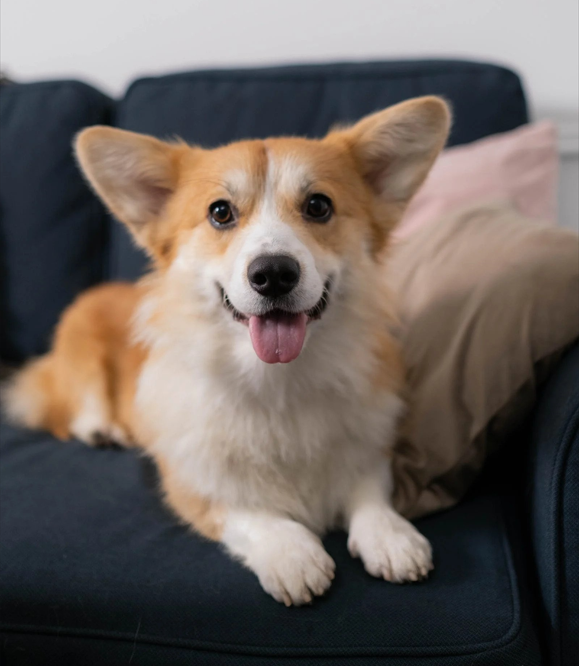
Small, large, short- or long-muzzled, with high or low energy levels...we all have our preferences to the traits that our dream dog breed should have. Since we are looking not only for a pet, but also for our family members and eventually our future service dog, the breed characteristics play an important role in the process of making a decision.
Not only the physical features but also the personality is an important factor that should be considered prior to choosing a dog breed. When it comes to service dogs- it may become even more difficult to opt for a breed, as the perfect service dog should possess many traits- intelligence, a friendly personality, trainability, a calm demeanor, loyalty, attachment to the owner...etc.
The Corgi is a dog breed whose representatives have gained much popularity in the past few years (maybe because they are the English queen’s favorite breed). If you are into this breed and consider turning your doggy into a service dog, you may want to know more about the breed’s characteristics.
Corgi - Origin & History
The Welsh Corgi is a type of herding breed, that originates in Wales. There are two types of breed that are currently recognized: the Pembroke Welsh Corgi (the more popular one) and the Cardigan Welsh Corgi. The second type is known for its larger size and differently shaped tail. The short legs of the Corgi is their distinguishing feature, and they even have impacted the origin of the breed’s name - “cor” means “dwarf” and “gi” (the prefix was original “ci”) means “dog”.
There are different theories in regard to the origin of the breed. Some people believe that both Corgi “versions” had the same ancestry, but evolved differently. Other theories state that the Pembroke Welsh Corgi was imported by Flemish weavers in the 10th century or originated in a territory in Europe around present-day Germany.
It is believed that the Cardigan Welsh Corgi was brought by settlers from Northern Europe. A dog breed similar to the Cardigan Welsh Corgi, known as Swedish Vallhund, can still be seen in the Scandinavian area.
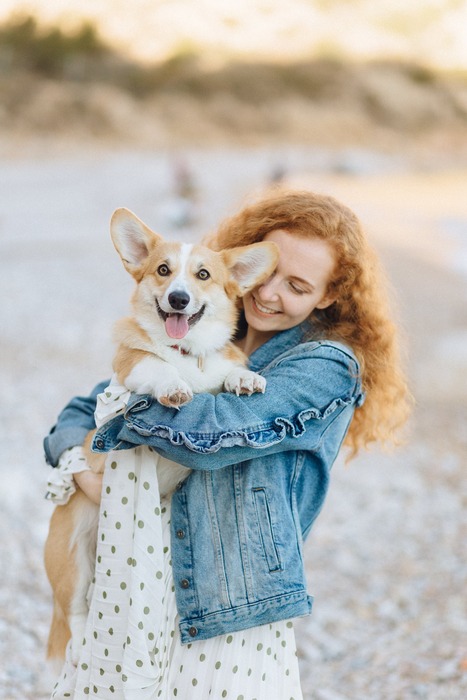
Corgi-Physical Features
The Pembroke Welsh Corgi is smaller than the Cardigan Welsh Corgi. The representatives of the first type can reach up to 25-30 cm / 10-12 inch in height compared to 25-33 cm / 10-13 inch in the representatives of the second type. The female representatives of the Pembroke Welsh Corgi can reach up to 10-13 kg / 22-29 lbs in weight and the male representatives of this type-up to 10-14 kg / 22-31 lbs. The female representatives of the Cardigan Welsh Corgi, on the other hand, can reach up to 11-15 kg / 24-33 lbs in weight, while the males- 14-17 kg / 31-37 lbs. Another difference between the two breed variations can be noticed on their tails.
The Corgi is known for its small, but robust body and short, but strong legs. These dogs have prick ears and a fox-shaped head with a black nose. Many representatives of the Pembroke Welsh Corgi have their tails docked at the age of 2-5 days in order to comply with the breed standard or due to compliance with historical tradition. This practice has been considered illegal in a lot of countries. The Cardigan Welsh Corgis do not typically get their tails docked, and you can enjoy watching at their fluffy fox-like tails.
The legs of the Pembroke Welsh Corgis are a bit straighter than those of the second breed’s type. Also, their ears are slightly smaller than those of the Cardigan Welsh Corgi. Another small difference can be noticed on the withers of both types-the withers of the Pembroke Welsh Corgi typically have light markings, which are likely to have occurred during the process of hair growth.
Both types of Corgi are double-coated. The double-coat provides protection during the cold season and also enables the breed representatives to cool off during the hot season. The Pembroke Welsh Corgi has the following color variations: Black & Tan, Red, Sable and Fawn. The coat of the Cardigan Welsh Corgi can be seen in: Brindle & White, Black & White, Blue Merle & White, Sable & White, Red & White.
Temperament & Personality
The Corgis are known as cheerful, playful and attentive doggies, who can become great family pets. Also, they are intelligent dogs, eager to learn. Of course, the personality may vary based on the individual. When it comes to raising a Corgi with a small child, you should be considerate. Due to their herding instincts (the Corgi was bred to heard small livestock and cattle) these canines may be a bit stubborn, and independent and even try to nip at the child’s heel. Also, they can bark loudly, which may scare a small child. In order to avoid issues of this kind, you should socialize and train your paw friend at a young age.
The Corgi will enjoy receiving your attention and feeling as a part of the family and enjoy all activities it participates in. Your paw friend will be eager to please you and cheer you up as needed. However, you may need to be patient and affirmative, while raising your pup, and show him/her who is in charge, as the Corgi can behave a bit bossy if not properly socialized and trained. We can say that these dogs have a big personality in a small body.
When it comes to interaction with other dogs, the Corgi can get along with other animals, especially playmates. However, your dog can be a bit territorial and suspicious towards unknown animals, which proves the important role of early socialization. The breed representatives can become great watch dogs, so you can always rely on your doggy to alert you if he/she notices something suspicious.
Considering the information above, you may already know that a dog of the Corgi breed can become your most loyal friend who will crave for your attention and who will enjoy participating in everything you do. The strong bond between a dog and his/her handler is of utmost importance for service dog training to be successful. If you want to ensure that your paw friend will get along with other people and animals, you should start working on his/her socialization at a young age.
Energy Level
Corgis have a lot of energy for dogs with such small bodies. However, they are not hyperactive, but rather have moderate to high energy levels. Due to their energy, these dogs enjoy running, playing and fulfilling various tasks. Actually, they tend to feel happier, when they have a task to do, which can be considered a big advantage if you would like to turn your Corgi into a service dog. You will need to invest time to exercise your paw friend (moderate amount of exercise is considered enough) so that he/she stays healthy and happy.
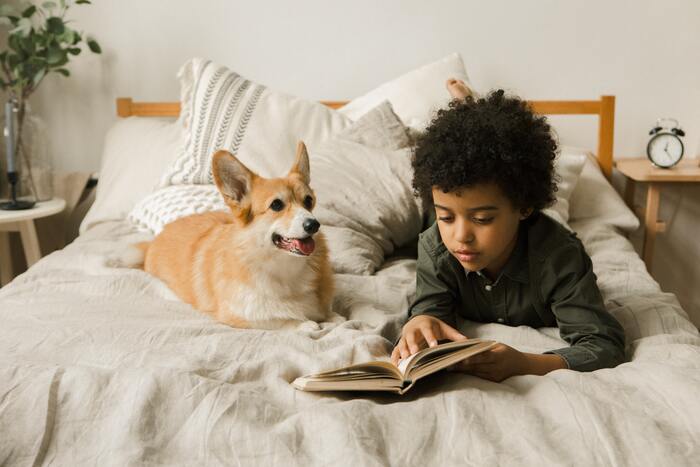
Adaptability
We would say that the breed is quite adaptive, and you can raise a Corgi in both an apartment and a house. However, as we mentioned, these dogs have high energy levels, which requires proper exercising. This is especially valid for people living in small apartments. If you do not provide your canine with an opportunity to spend his/her energy, he/she may start exhibiting unwanted behaviors.
Intelligence
Herding breeds like the Corgi, the Border Collie, the Australian Shepherd, are considered very intelligent. They are eager to work and be engaged in various activities. They can be independent, which helps them make decisions on their own and also follow command by humans. Intelligence is a trait that dogs should have in order to become great service animals.
Trainability
The Corgi is a highly trainable dog breed. Whether basic obedience tasks such as “sit”, “stay”, “come”, “heel”, “leave” or more advanced tasks directly related to a disability, your doggy can excel in both areas.
Barking
We decided to separately discuss “barking” as a common issue in dogs, as the Corgi can be quite vocal. These canines can bark really loudly, which can be tracked down to the purpose of their breeding and namely to herd cattle and livestock. In order to get the attention of larger animals like cows, these dogs had to bark deeply. Of course, if your Corgi is bored, wants to get your attention, is looking for ways to spend his/her energy or wants to notify you about a certain situation, he/she may bark as well. If you live in an apartment, this may cause problems with your neighbors, so you should keep this in mind. However, the tendency to bark can be seen as a benefit for people who are looking for an alert service dog. If you would like to prevent your paw friend from developing bad habits in the future, you should start working on addressing this type of behavior as early as possible.
Shedding
If you like this dog breed, and would like to raise its representative, you should be prepared for some amount of fur on your furniture on a regular basis. Since Corgis are double-coated, the inner layer of fur is responsible for the big amount of fur that Corgis shed. You can expect your dog to excessively shed twice a year-during the spring and the fall. In order to take care of your canine’s coat and keep it maintained, you should brush him/her at least 2-3 times a week and bath him/her at least once a month. Having a lint roller and cleaning your home at least twice a week, will help you get rid of the fur stuck on your clothes and furniture.
Costs
Based on where you got your pup from, he/she may cost you between $400 and $4000. The average cost for a dog of this breed is about $700-$2000. If you are looking for a Corgi from a reputable breeder, especially if his/her parents are of show quality, the price is likely to exceed $3000. Breeders, who have invested a lot of time and money into the process of breeding, will set higher prices.



